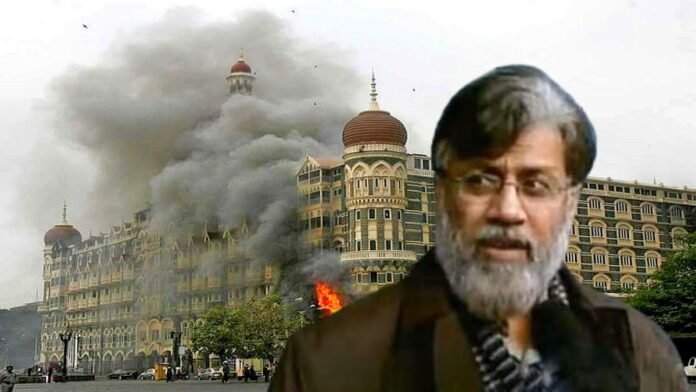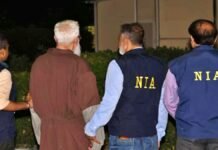
Key Points
- 26/11 Mumbai terror attack accused Tahawwur Rana has been remanded to judicial custody in Tihar Jail until June 6, 2025, following his extradition from the US.
- Rana, a Pakistani-origin Canadian businessman and close associate of David Coleman Headley, is accused of playing a critical role in planning and facilitating the 2008 attacks.
- The NIA is interrogating Rana for information on Lashkar-e-Taiba’s operational details and future terror plots, but he is reportedly not cooperating with investigators.
- The court has allowed the NIA to collect Rana’s voice and handwriting samples to match with evidence from the 2008 attacks.
- The 26/11 attacks killed 166 people and remain one of India’s deadliest terror incidents; Rana’s extradition marks a significant development in the ongoing investigation.
New Delhi: In a significant breakthrough for Indian counter-terror agencies, Tahawwur Hussain Rana, a key accused in the 2008 Mumbai terror attacks, has been remanded to judicial custody in Tihar Jail until June 6, 2025, by a Delhi court. The order was issued by Special NIA Judge Chander Jit Singh after Rana was produced in Patiala House Court under heavy security on Friday, following the conclusion of his National Investigation Agency (NIA) custody.
Who is Tahawwur Rana?
Rana, 64, is a Pakistani-origin Canadian businessman and a close associate of David Coleman Headley (Daood Gilani), the Pakistani-American operative who conducted reconnaissance for the 26/11 attacks. Authorities allege that Rana provided logistical support to Headley and Lashkar-e-Taiba, the terror group behind the attacks, helping plan and facilitate the deadly operation.
Extradition and Security Measures
Rana was extradited from the United States to India on April 10, 2025, after the US Supreme Court rejected his final appeal against extradition. He was flown to Delhi under tight security and has since been held in NIA’s special security cell, with extra precautions due to the high-profile nature of the case.
NIA’s Investigation and Non-Cooperation
The NIA has told the court that Rana could possess vital information about Lashkar-e-Taiba’s operational details and future terror plans targeting India. Investigators have been questioning him “in a measured manner” considering his health, despite Rana’s claims of being interrogated for up to 20 hours a day. However, officials report that Rana has not been cooperating fully with the probe, often giving evasive answers.
The court has permitted the NIA to collect Rana’s voice and handwriting samples, aiming to match them with evidence from the 2008 attacks, including telephonic conversations and handwritten notes exchanged with Headley.
Background: The 26/11 Mumbai Attacks
On November 26, 2008, ten heavily armed Pakistani terrorists launched coordinated attacks across Mumbai, targeting the Chhatrapati Shivaji Maharaj Terminus, Taj Mahal Palace Hotel, Oberoi Trident, and Nariman House Jewish Centre. The siege lasted nearly 60 hours, killing 166 people and injuring hundreds more. The attacks remain one of the deadliest terror incidents in India’s history.
What’s Next?
Rana’s judicial custody marks a major step forward in the long-running investigation into the 26/11 attacks. The NIA is expected to intensify its efforts to extract information on Lashkar-e-Taiba’s current operations and any ongoing threats to India. Meanwhile, Rana’s legal team has filed a plea seeking permission for him to speak with his family.
Tahawwur Rana, extradited from the US for his alleged role in the 26/11 Mumbai attacks, will remain in Tihar Jail until June 6 as the NIA continues its high-stakes investigation into one of India’s most devastating terror plots. The case is seen as a critical moment in India’s fight against cross-border terrorism and efforts to bring all conspirators to justice.















































